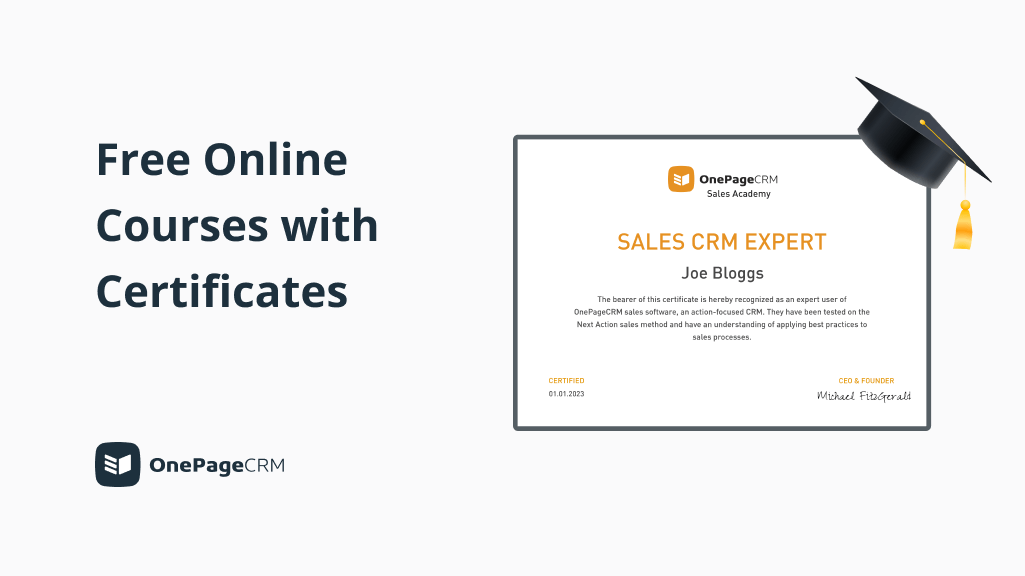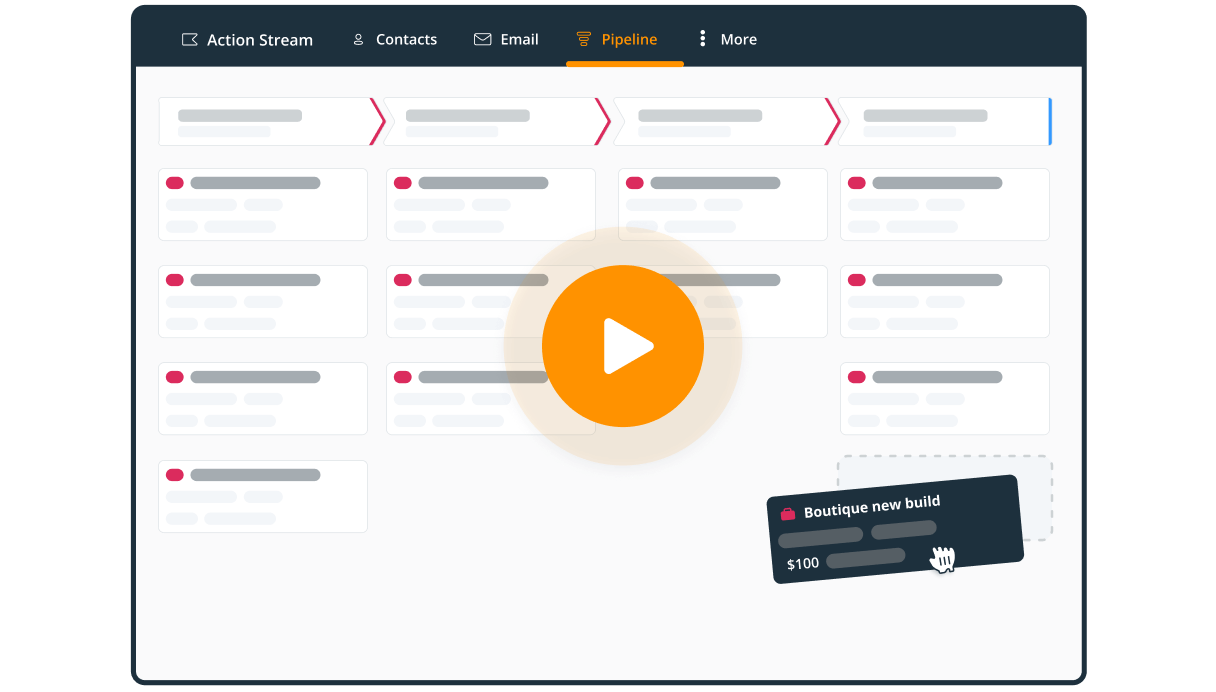

The 3 things everyone needs to know about qualification in sales

What is more difficult—qualifying leads or closing deals?
The answer might surprise you.
We recently interviewed Natalia Fedorova:
In this interview, we delved deep into qualification in sales: why it’s the most important and also most difficult part of the sales process… and what it takes to do it right.
Enjoy the read!
Why qualification is important in sales?
Natalia: Salespeople are measured based on the number of closed deals and the amount of revenue they bring in. That’s why it’s a common conception that closing is the most difficult part of the job.
In reality, the majority of problems that happen during the closing stage could have been addressed much earlier, during qualification.
At face value, opportunity qualification seems very simple. You’re just asking questions, right? You don’t have to ask for money.
Imagine a salesperson who’s spent 6 months working on a deal—and then they don’t close that deal. Why?
The first explanation that comes to mind is “Well, closing deals is the most difficult thing to do”.
But understanding the connection between closing and qualification is very important.
The qualification process is neither easy nor straightforward. We don’t send a questionnaire to a customer, ask them to fill it out, and then based on their answers, send them a highly personalized solution.
One of the biggest problems that I see is when salespeople are so eager to close the deal that they skip some questions and try to get over with qualification as quickly as possible.
This creates problems down the line. If the salesperson is not really sure what the customer is looking for; if they don’t know who’s involved in the process; or they don’t know what the customer’s biggest pain point is, how can they help them?
Once they are ready to close the deal, it might turn out that there are five more people in the decision-making process and that these people are not as excited about the product as the salesperson thought they were or the salesperson didn’t even know these stakeholders existed. This means that they’ll need to restart the sales process.
That’s why qualification shouldn’t be overlooked.
The lurking danger of assumptions in sales
Natalia: Of course, in the ideal environment, salespeople do some preparation before qualification starts.
Sometimes it’s enough to look at their social media profile or the company’s website—you can learn about your prospect’s interests or major company updates.
This pre-qualification research can be helpful and it’s a very important step in the sales process but there’s one problem with it: we are making assumptions here.
We don’t know for sure what the prospect needs or what their role at the company really entails. We just assume. This can lead to incorrect recommendations and troubles with closing in the future.
So ideally we need to do some preparation first. But then the qualification process should continue with exploratory conversations where the main goal is to get to know our prospects better.
Questioning skills and curiosity
Natalia: The importance of having exploratory conversations brings me to one of the most important skills in sales: asking the right questions.
Usually, if a company already has paying customers, they have an understanding of what questions they need to ask. When you have any kind of CRM system, I usually recommend having the qualification checklist there.
So let’s say I’ve been working on qualifying a lead and now I’m ready to move them to the next stage. I can quickly check in my CRM system if all the questions were covered.
If they weren’t or if there are any doubts, I always recommend salespeople to get back to the prospect and have another meeting or a call just to get all the information they need. That’s why questioning skills are so important.
Questioning skills are tightly connected with curiosity, which also gets a lot of attention in sales. When salespeople are genuinely interested in their prospects, the prospects can feel that.
Closing more sales deals with proper qualification
Natalia: Sometimes customers aren’t telling the whole story. They might omit some pieces of information because they’ve been in their environment for so long that they think that everyone knows what they know.
That’s why customers might not mention some important information to the salesperson. And then the salesperson will suggest something that won’t solve their problem. So the deal will slip away.
Properly done qualification means that you have correctly figured out your prospect’s needs and you know how your solution solves their problems. In this case, closing will be much easier because you’ll be able to connect the value they are getting with the price they are paying.
Ideally, closing should be a win-win for both sides. You are not selling a product or a service to your customer, you are selling them a solution to their problems.
When persistence doesn’t pay off
Natalia: To reach your sales target, you need to know when it’s not a good match—and if it’s better to spend your time on other opportunities instead.
Is this project a priority for the customer? Are they being transparent about who is involved in the decision-making process? Do they know what they are looking for? These are all things to look out for.
This might be an unpopular opinion but I don’t believe that when a customer really doesn’t want a product, you can force them to buy it.
What if they just don’t have the resources right now? Instead of spending time persuading them that they have to find the resources, it might be better to wait and call them back in 3-to-6 months and see if anything changes in their business.
This approach won’t work in every situation but it’s important to know when it’s worth taking a step back.
How to get better at qualification?
Natalia: The only way to improve any skill is to practice.
It’s similar to eating healthy food and exercising regularly. We all know in theory how important they are but unfortunately, not everyone is eating healthy and exercising.
Salespeople often think that if they don’t know how to qualify leads, they need training. So they take up a course—but things don’t magically change overnight.
Training is only 10% of success. 90% of success is practice. Get support from your direct manager, from your Sales Enablement department. Practice, fail, self-reflect, learn from your mistakes, practice again, and succeed.
The other thing is that qualification is not a straight line. It continues as long as you work with this customer. You can always get back to a prospect and ask something if you think you missed it during your previous interaction.
A lot of salespeople, especially at the beginning of their careers, are hesitant to do so. They think that if they don’t ask all the questions during the very first conversation, they will look unprofessional.
In reality, if they reflect on the conversation and realize that they missed something, it’s okay to get back to the prospect and say “You know, I was thinking about something and realized that I didn’t ask this thing.” This shows that you care and that you were thinking about them and their needs.
So if you want to get better at qualification, which will also lead you to becoming better at closing your deals, my advice would be: just practice. Ask more questions and pay attention to how your prospects react. If you missed anything, get back to them and ask again.
This sounds simple, but it’s difficult to do this because salespeople often have a very long list of prospects whom they have to call.
The three things everyone needs to know about qualification in sales
So here you have it, the three things everyone needs to know about qualification:
-
1Good qualification goes hand in hand with a high closing rate.
-
2Over-researching can lead to false assumptions (and costly mistakes).
-
3No amount of good training can replace real-life experience.












